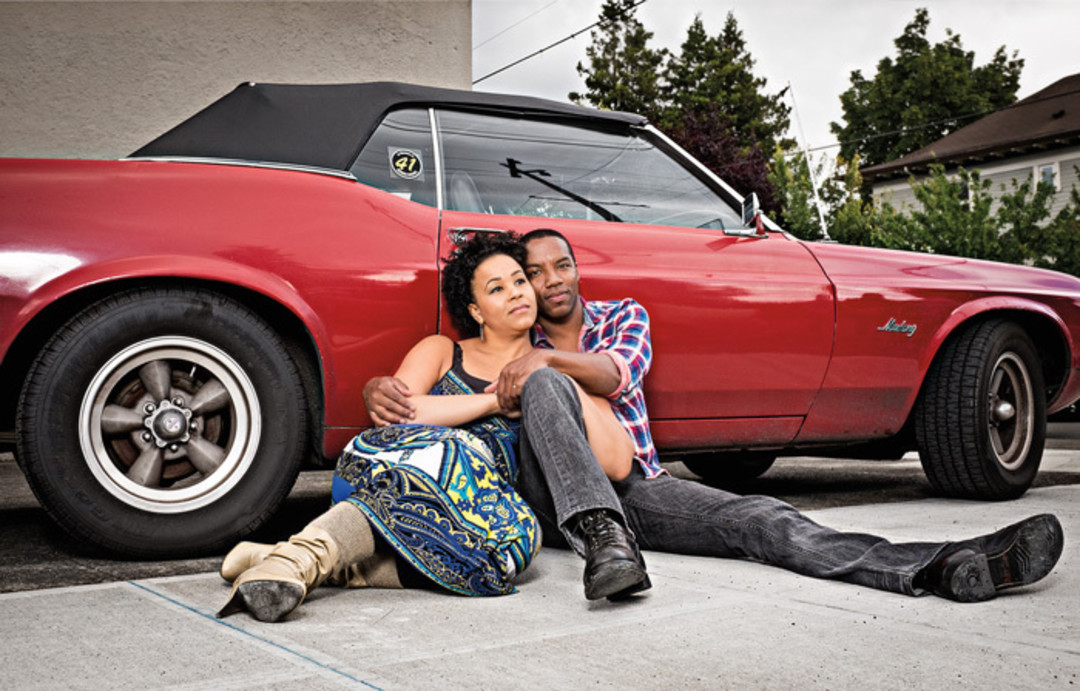Race to the Stage

Portland Playhouse presents August Wilson's Jitney
Image: Courtesy Portland Playhouse
In the Pittsburgh imagined by the playwright August Wilson, there stands a house with a red door. This is the home of Aunt Ester, a mythically old woman known as a “washer of souls.” In Wilson’s Gem of the Ocean—the beginning of what’s known as his 10-play Pittsburgh Cycle—ex-slaves who have migrated to the city are told to find the red door.
“When you walk through the red door, she says, you leave the shackles of slavery behind,” explains Kevin Jones, a local theater professional who has acted in and directed several plays by the legendary African American playwright. “And when you walk back out, you live your life anew.’”
To Jones and partner Lesli Mones, that kind of renewal is also needed in Portland, a city with a relatively small African American population, a history of racism, and a theater audience that is older, wealthier, and even whiter than the city as a whole. So when the two founded a nonprofit in 2012 to address racial issues in Portland via the arts, they chose Aunt Ester’s transformative portal as the organization’s namesake, calling it the August Wilson Red Door Project. After two years of leading postshow discussions at local theaters, the nonprofit is now reaching deeper into the city’s theater community by founding the Portland Equity in the Arts Consortium.
For six months, people who work for organizations in this new “learning community”—Artists Repertory Theatre, Hand2Mouth, PlayWrite, Portland Playhouse, Profile Theatre, and Third Rail Repertory Theatre—studied how to foster equity and diversity within their own ranks. The group’s members are now working to make their boards, staffs, and audiences better reflect Portland’s growing diversity.
Portland Playhouse, for one, is running a “host program” with its current production of August Wilson’s Jitney: for each performance, a community leader, such as Legacy Health CEO George Brown or Grimm star Russell Hornsby, invites people and speaks before curtain. Three years ago, artistic director Brian Weaver disproved the perception that there weren’t enough black actors (or enough of an audience) in Portland to successfully produce Wilson’s work when his theater’s run of Radio Golf sold out, ushering in a local Wilson renaissance. For Weaver, the six-month immersion into equity issues clarified the realization that diversity also means innovation: it brings in new audiences and collaborators, like the hosts, ensuring a stronger future.
“We have to expand our audience,” he says, “not just because we want to see people of different colors, but because we want to be relevant to a larger group of people.”




